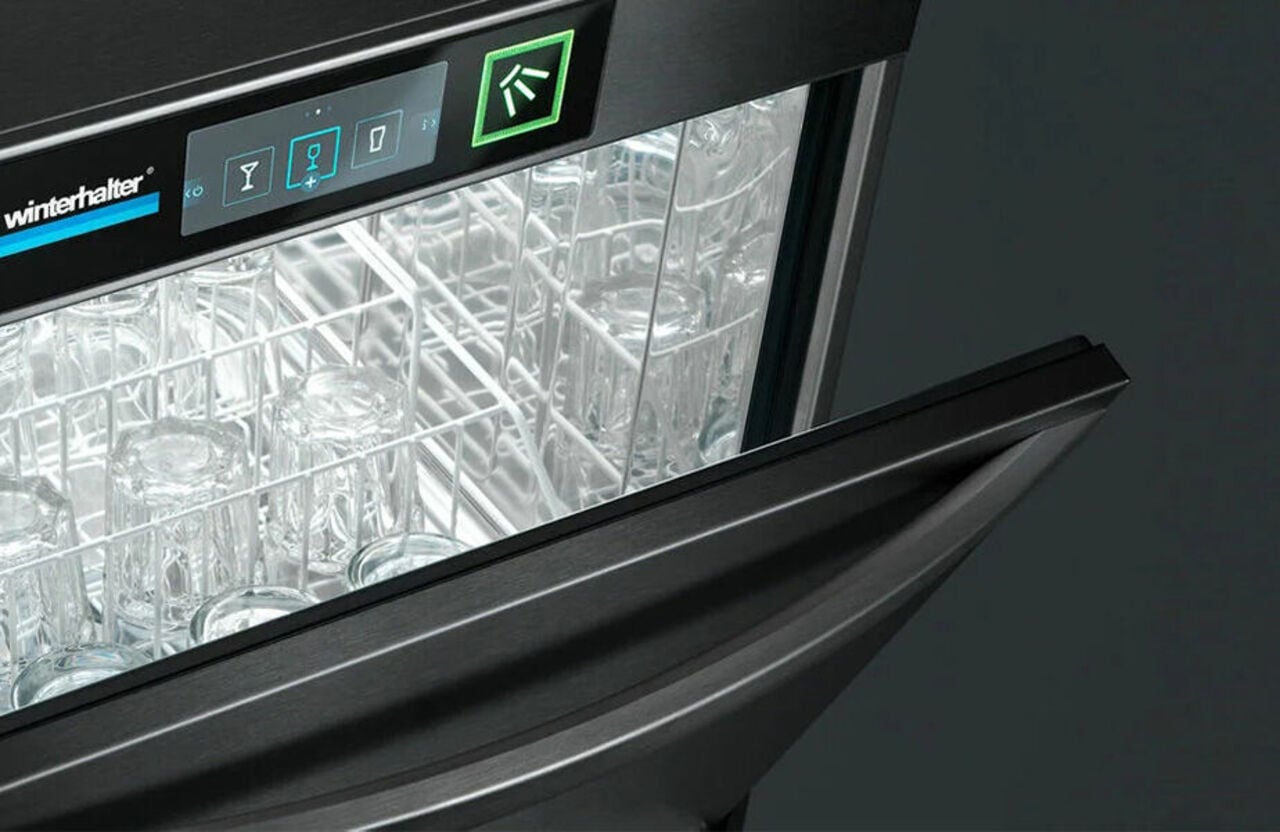
Wash hygiene: the new DIN EN 17735 standard
When you buy printer paper in A4 format, you can be confident that the paper is exactly 210 mm wide and 297 mm high and will fit in the printer's paper tray. It's similar with DIN EN 17735: If a commercial warewasher and its operation, detergent, maintenance and servicing comply with the hygiene requirements of this standard, full hygiene safety is guaranteed.
What is DIN EN 17735?
DIN EN 17735 is a standard in the field of food hygiene: It defines hygiene requirements for the planning, design and operation of commercial warewashers and for the tests that must be carried out on these machines. It also includes guidelines for the professional and hygienic operation, cleaning, care and maintenance of the machines. The suffix "EN" stands for "European Norm", which is different from the international ISO standards of the "International Organisation for Standardisation". DIN EN 17735:2023-02 has been in force since February 2023: it is based on the draft standard DIN EN 17735:2021-10 and replaces the previous standard DIN SPEC 10534:2019-02. The standard is available from Beuth-Verlag in printed form and as a PDF (52 pages, in German and English). The current version is DIN EN 17735:2023-02.
What is DIN EN 17735 about?
DIN EN 17735 defines hygiene requirements for commercial warewashers . These include, for example, specifications for the planning and design of the different machine types (door-/hood-type dishwashers and flight-type dishwashers). It provides information on hygienic and professional operation, cleaning and disinfection of the wash items and care and maintenance of the machines. It also sets out the basic hygiene principles for the spatial arrangement of warewashers in the kitchen area and the organisation of the wash item cycle.
Why does DIN EN 17735 exist?
Everyone who visits a foodservice establishment has the right to hygienically clean dishes and cutlery. All items should be cleaned in such a way that there is no risk to health. As well as compliance with general hygiene regulations for processing and preparing food, there are also hygiene-related things to consider when washing. DIN EN 17735 is a guideline that helps every foodservice business to ensure hygiene safety in automatic dishwashing . Machine manufacturers and supervisory authorities also benefit from DIN EN 17735: the type test enables them to prove that the machines deliver hygienically perfect wash results when operated correctly.
What is the difference between DIN EN 17735 and DIN SPEC 10534?
DIN SPEC 10534 was a pre-standard that summarised the standards DIN 10510, DIN 10511 and DIN 10512 to create a basis for the creation of DIN EN 17735 at European level. Following the publication of DIN EN 17735 in February 2023, DIN SPEC 10534 and the standards it covers were withdrawn in 2024.
Who is DIN EN 17735 aimed at?
DIN EN 17735 is a useful reference work and tool for various groups. Warewasher manufacturers can use the procedures described in this document to check the hygiene performance of their machines. Inspection authorities such as the official food inspection agency can use the standard to detect hygiene deficiencies. And users in foodservice and mass catering will find information in the standard about how to achieve hygienically perfect cleaning of wash items in accordance with legal requirements.
Which warewashers does DIN EN 17735 apply to?
The standard is aimed at commercial warewashers for cleaning dishes that come into contact with food. This includes warewashers in the kitchens of restaurants, canteens and company cafeterias, clinics and hospitals, bakeries and butcher's shops. The standard covers all machine categories: from small undercounter warewashers to hood and utensil washers to large conveyor dishwashers. The only exceptions are warewashers for private domestic use and for preparing medical devices.
In which countries does DIN EN 17735 apply?
The suffix "EN" shows that DIN EN 17735 is a European standard that is recognised in all European countries. DIN EN 17735 is often used as a guideline in countries outside Europe as there is no corresponding international ISO standard yet.
Is it mandatory to comply with DIN EN 17735?
No, the implementation of a DIN standard is basically voluntary. It only becomes mandatory if the legislator prescribes compliance with a DIN or if the standard is an integral part of a contract. Anyone who follows the DIN specifications can be sure that they are operating correctly in terms of hygiene and will also be able to provide evidence of correct procedures in the event of a legal dispute.
Who or what is DIN?
The Deutsche Institut für Normung e. V. (German Institute for Standardisation, DIN) develops norms and standards for products, services and processes. Experts from business, science and research, public institutions and civil society all contribute their knowledge to the standardisation process, which DIN oversees as a privately organised project manager . As well as developing German standards , DIN also represents German interests in European standardisation at the CEN (Comité Européen de Normalisation, Brussels) and in international standardisation at the ISO (International Organization for Standardization, Geneva).

















